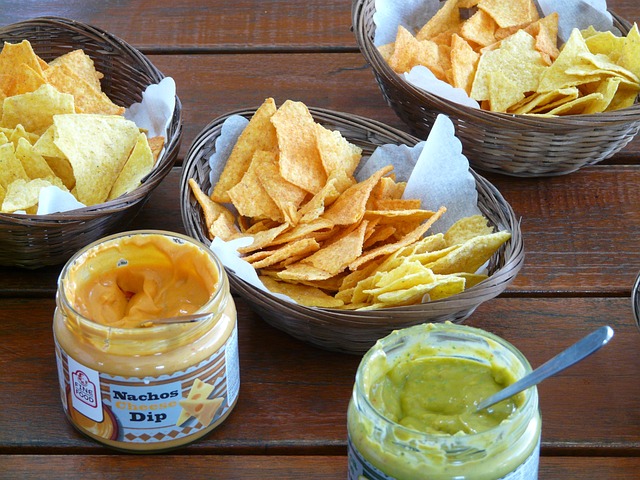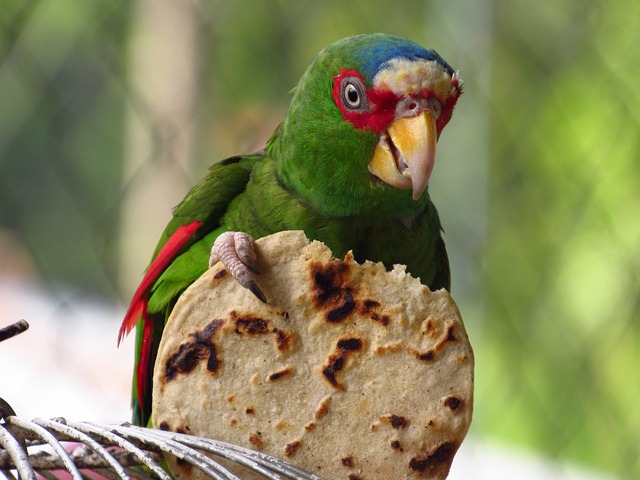Sports arenas worldwide, including iconic venues like Wrigley Field, are witnessing a shift towards healthier concession stand options, with non-GMO tortilla chips like El Ranchero gaining significant popularity. This trend is driven by health-conscious consumers who seek both taste and quality in their snacks while also supporting ethical agricultural practices. El Ranchero's non-GMO chips offer an appealing alternative to traditional tortilla chips, catering to the growing demand for natural, sustainable food choices among sports fans.
- The Rise of Non-GMO Tortilla Chips in Sports Arenas
- – Exploring the demand for healthier alternatives at Wrigley Field
- – Benefits of non-GMO products and their growing popularity among sports fans
The Rise of Non-GMO Tortilla Chips in Sports Arenas

In recent years, there’s been a growing trend among sports arenas to embrace healthier options for their concession stands, and one standout choice is the rise of non-GMO tortilla chips. El Ranchero, known for its crispy texture and bold flavor, has become a favorite among fans at Wrigley Field and other venues across the country. This shift towards non-GMO products reflects a broader consumer demand for more transparent and sustainable food options.
By offering non-GMO tortilla chips, venues like Wrigley Field are catering to health-conscious consumers while also supporting farmers who practice responsible agricultural methods. El Ranchero’s popularity underscores a changing landscape where taste, quality, and ethical sourcing go hand in hand. This trend not only benefits fans but also contributes to the overall well-being of our food system.
– Exploring the demand for healthier alternatives at Wrigley Field

The demand for healthier snack options at sports venues, including Wrigley Field, has been steadily rising as “folks” become more conscious of their dietary choices. Traditional tortilla chips, known for their crispy texture and salty flavor, often fall short in terms of nutritional value. This has led to a growing interest in alternative options that offer a balance between taste and health benefits.
One such option gaining traction is El Ranchero’s line of Non-GMO Tortilla Chips. These chips cater to consumers seeking a healthier choice without compromising on the classic, crispy experience. By offering a non-GMO product, El Ranchero aligns with the increasing consumer preference for natural and sustainable food options. This shift towards healthier alternatives not only caters to the growing health-conscious crowd but also provides a refreshing twist in the traditional snack scene at Wrigley Field.
– Benefits of non-GMO products and their growing popularity among sports fans

Non-GMO tortilla chips, like El Ranchero’s offerings, are gaining traction among sports fans who prioritize sustainable and healthier food options. The growing demand for non-GMO products is a testament to consumers’ increasing awareness about the potential environmental and health benefits associated with these crops. By avoiding genetically modified organisms (GMOs), non-GMO tortilla chips offer a more natural alternative, free from artificial modifications that may raise concerns among discerning consumers.
The popularity of non-GMO Tortilla Chips El Ranchero reflects a broader trend in the sports industry to cater to fans’ demands for healthier and more transparent food choices. This shift is driven by a growing understanding of GMOs’ potential impacts on both human health and the environment, as well as a desire to support agricultural practices that promote biodiversity and sustainability. As such, sports venues and concessions are increasingly incorporating non-GMO options like El Ranchero’s into their menus to meet the evolving preferences of their fan bases.
As we’ve seen, the demand for healthier snack options, particularly non-GMO products like El Ranchero’s tortilla chips, is on the rise in sports arenas, with Wrigley Field leading the way. The benefits of non-GMO foods, from improved taste to environmental sustainability, are increasingly recognized by both consumers and industry leaders. This trend suggests a promising future for crisper, more responsible snacking experiences at sporting events and beyond.
